Ubuntu vs. Windows 7 on the business desktop
Microsoft Windows may be the de facto standard desktop operating system in business environments, but high costs, restrictive licences and constant security issues are leading an increasing number of companies to consider open source alternatives — as Kat Orphanides explains.

Shotwell handles image searching and tagging, as well as such basic image-editing tasks as red-eye removal, cropping and general enhancement. It can also share images online via Facebook, Flickr or Picasa. Windows doesn't have an integrated equivalent, although free tools such as IrfanView and ACDSeeperform the same task admirably.
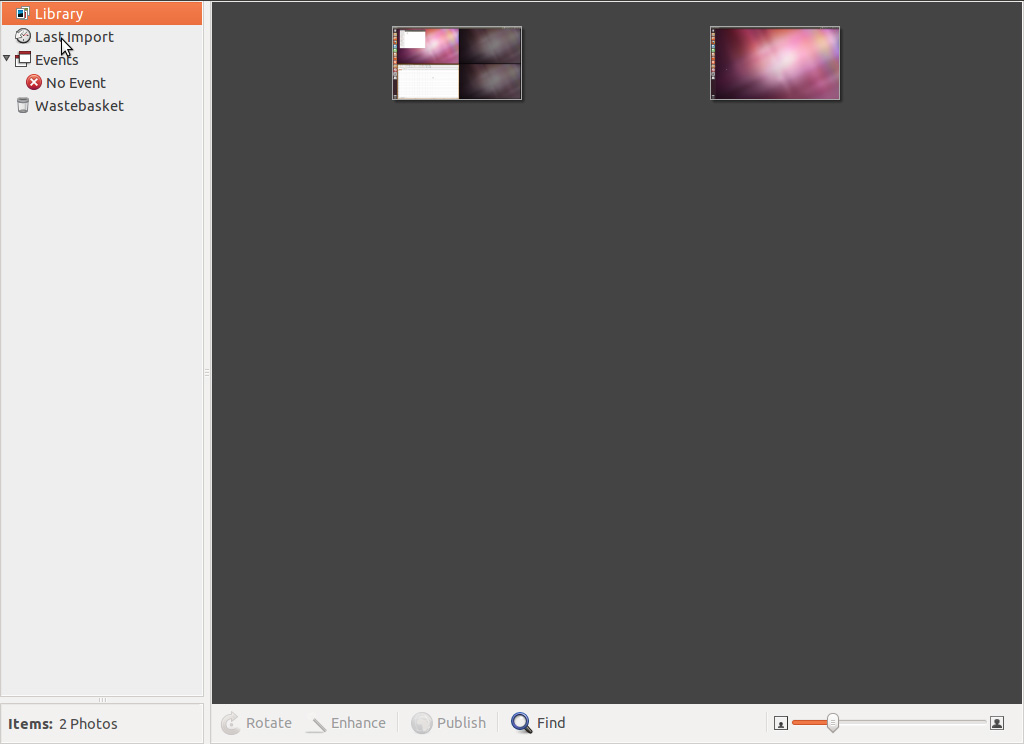
One creative area in which Linux is a little lacking is DTP and there's no heavyweight open source equivalent to Adobe InDesign or QuarkXPress. Scribus is a relatively straightforward and feature-filled DTP application for short and simple documents though, and can save files in PDF format.
Multimedia Support
No operating system intended for business use is complete without an application for creating presentations and Linux is ably served by LibreOffice Impress.
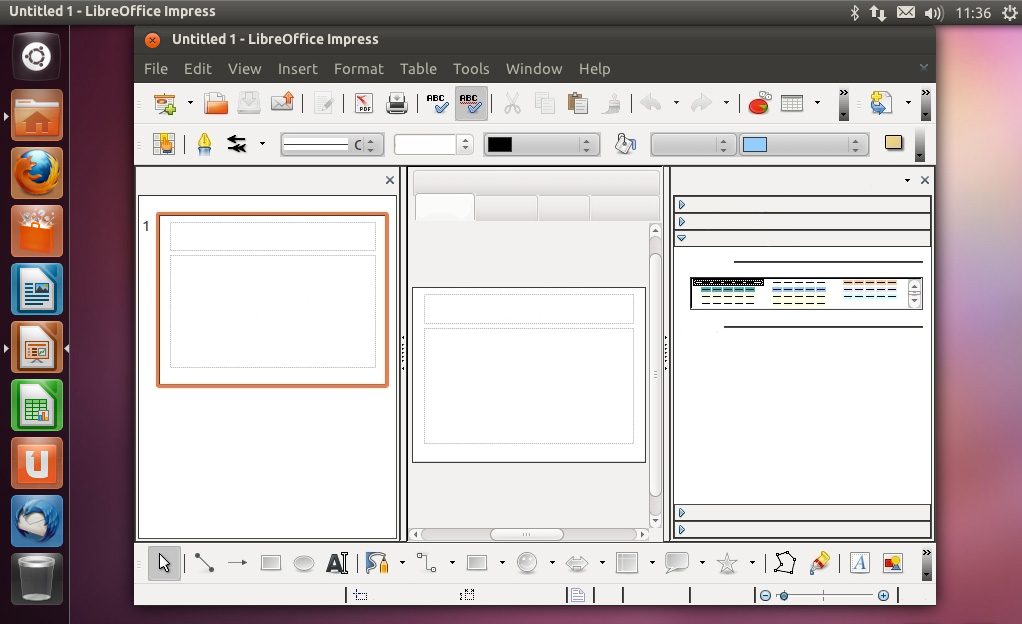
This is remarkably similar to Microsoft PowerPoint, with a variety of template styles, support for slide notes, plus embedded charts, videos and sound files. The option to create handouts to accompany a presentation is useful, too.
Copyright issues relating to open source software mean than Ubuntu lacks built-in support for a number of multimedia file formats, including MPEG4 video. This means a download is required before many kinds of file can be opened, but this is usually automatic and swift as long as there's an internet connection available, of course. Copyright issues relating to open source software mean than Ubuntu lacks built-in support for a number of multimedia file formats.Video editing is usually best left to experts equipped with professional-level software, but there are situations where footage of a meeting or interview might need to be quickly cut together on the desktop. Windows is rather poorly served on this front Live Movie Maker only provides basic functionality and lacks support for multiple video and audio tracks.
The Ubuntu Software Centre has several viable options for these sort of simple requirements, including OpenShot Video Editor, but this is rather too similar to Windows Live Movie Maker to be useful.
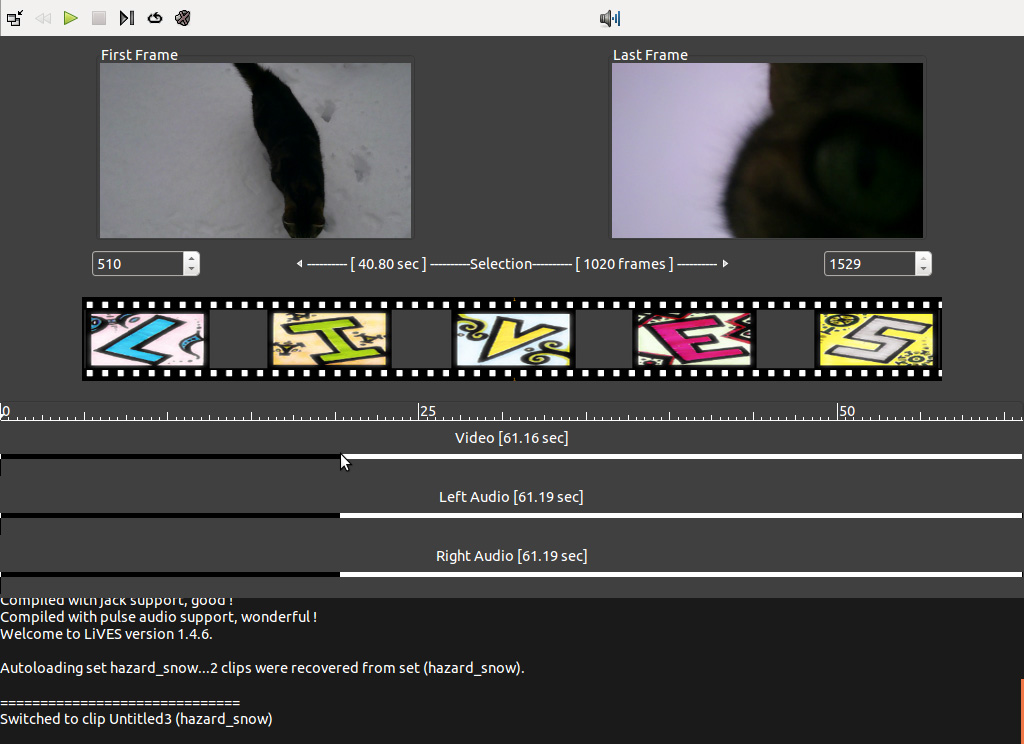
LiVES is a more sophisticated and versatile video editor, but it will require the download of any necessary video codecs before it can export any edited footage.
Get the ITPro daily newsletter
Sign up today and you will receive a free copy of our Future Focus 2025 report - the leading guidance on AI, cybersecurity and other IT challenges as per 700+ senior executives
Internet Applications
Ubuntu 11.10 installs the capable Mozilla Firefox web browser by default, but Chromium the open source version of Google Chrome is also available for Linux.
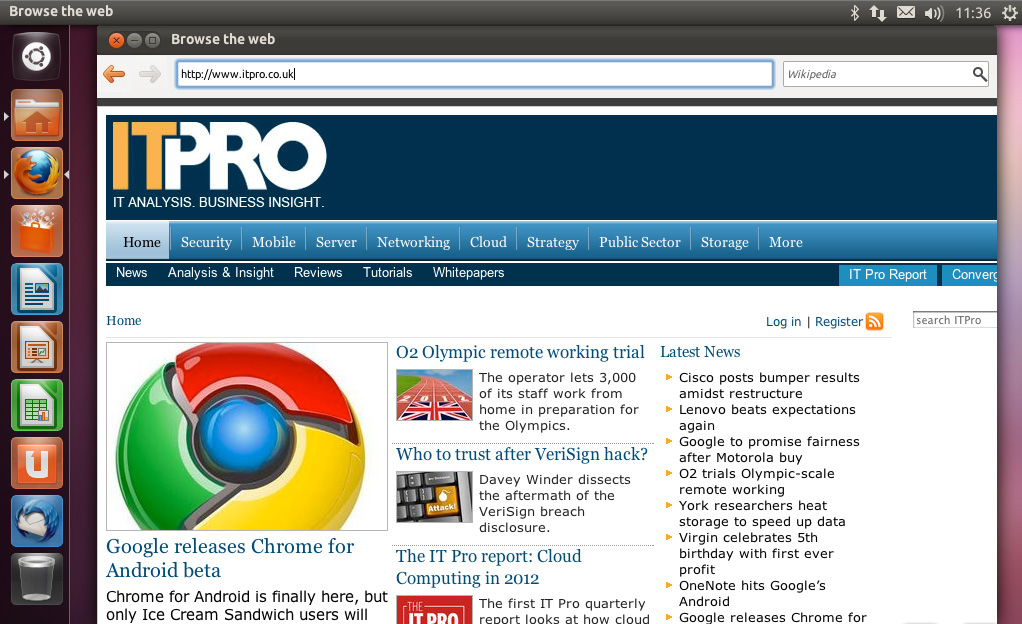
Neither support Adobe Flash from the get go, but Firefox prompts for the installation of the open source Gnash SWF plug-in as soon as Flash content is encountered online. Chromium does not, but will make use of the same plug-in if installed for Firefox.
K.G. is a journalist, technical writer, developer and software preservationist. Alongside the accumulated experience of over 20 years spent working with Linux and other free/libre/open source software, their areas of special interest include IT security, anti-malware and antivirus, VPNs, identity and password management, SaaS infrastructure and its alternatives.
You can get in touch with K.G. via email at reviews@kgorphanides.com.
-
 Asus ZenScreen Fold OLED MQ17QH review
Asus ZenScreen Fold OLED MQ17QH reviewReviews A stunning foldable 17.3in OLED display – but it's too expensive to be anything more than a thrilling tech demo
By Sasha Muller
-
 How the UK MoJ achieved secure networks for prisons and offices with Palo Alto Networks
How the UK MoJ achieved secure networks for prisons and offices with Palo Alto NetworksCase study Adopting zero trust is a necessity when your own users are trying to launch cyber attacks
By Rory Bathgate
-
 Linux just hit an all-time high share of the global desktop market — and surging popularity in India is driving uptake of the open source operating system
Linux just hit an all-time high share of the global desktop market — and surging popularity in India is driving uptake of the open source operating systemNews Linux is still dwarfed by operating systems such as Windows, but it’s making modest gains off the back of growing popularity in emerging markets
By Steve Ranger
-
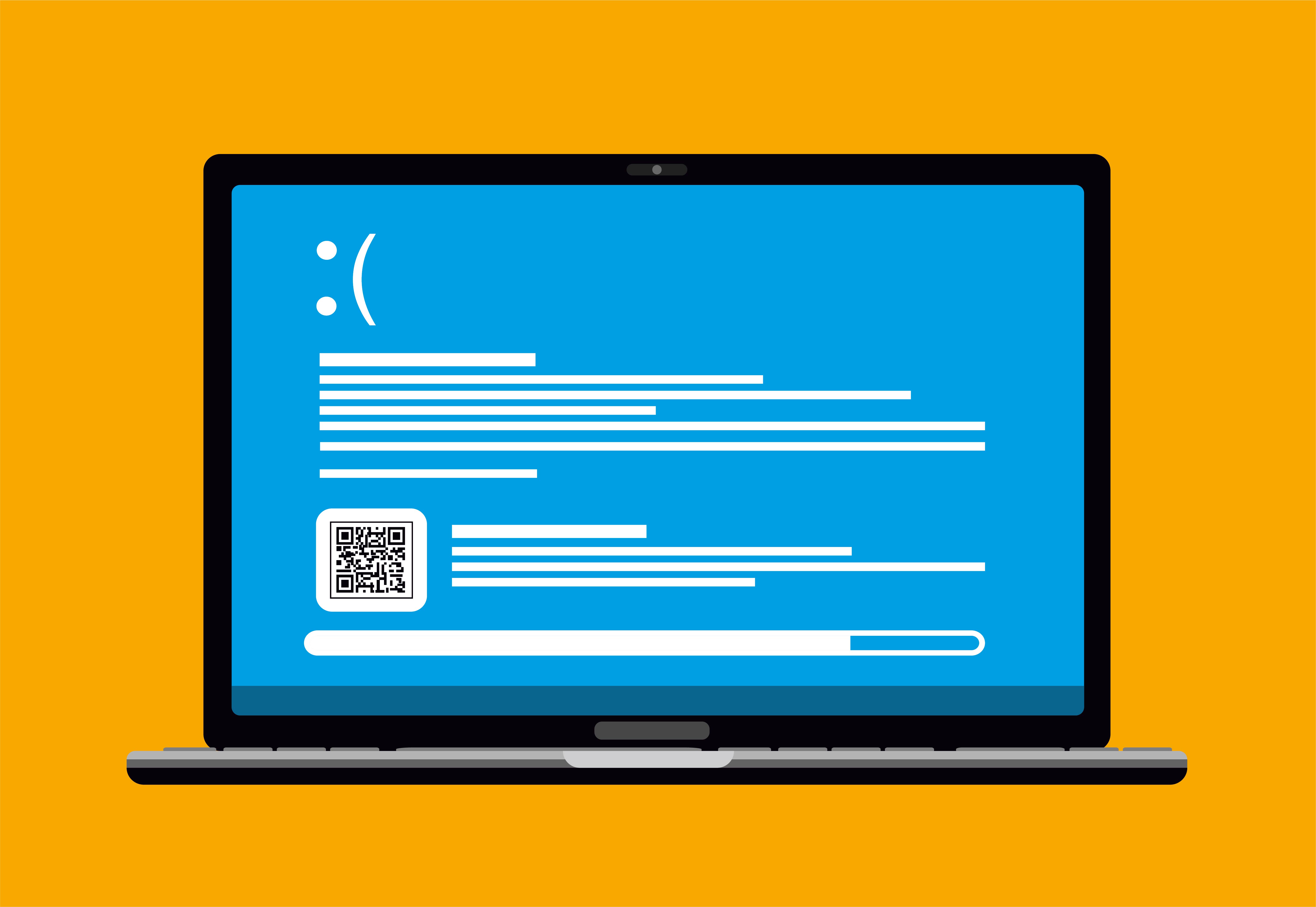 Linux Blue Screen of Death gives users a taste of the dreaded Windows feature
Linux Blue Screen of Death gives users a taste of the dreaded Windows featureNews The Linux Blue Screen of Death has been added in a recent update
By Ross Kelly
-
 Tiny11 review: Windows 11 with only 2GB of RAM
Tiny11 review: Windows 11 with only 2GB of RAMReview A version of Windows 11 for older machines that don't meet the full requirements
By Nik Rawlinson
-
 Red Hat Enterprise Linux becomes foundational operating system for Cohesity Data Cloud
Red Hat Enterprise Linux becomes foundational operating system for Cohesity Data CloudNews New strategic partnership between Red Hat and Cohesity aims to drive innovation in the data security and management space
By Daniel Todd
-
 Ubuntu shifts to four-week update cycle
Ubuntu shifts to four-week update cycleNews Critical fixes will also come every two weeks, mitigating the issues involved with releasing prompt patches on the old three-week cadence
By Richard Speed
-
 AlmaLinux follows Oracle in ditching RHEL compatibility
AlmaLinux follows Oracle in ditching RHEL compatibilityNews Application binary compatibility is now the aim with 1:1 now dropped
By Richard Speed
-
 How big is the Windows 10 cliff-edge?
How big is the Windows 10 cliff-edge?ITPro Network With some comparing the upcoming Windows 10 end of life to Windows XP, we ask members of the ITPro Network for their insight
By Jane McCallion
-
 Everything you need to know about the latest Windows 11 updates - from bug fixes to brand-new features
Everything you need to know about the latest Windows 11 updates - from bug fixes to brand-new featuresNews Two new cumulative updates are on the way and will be installed automatically on Windows 10 and Windows 11 machines
By Rory Bathgate